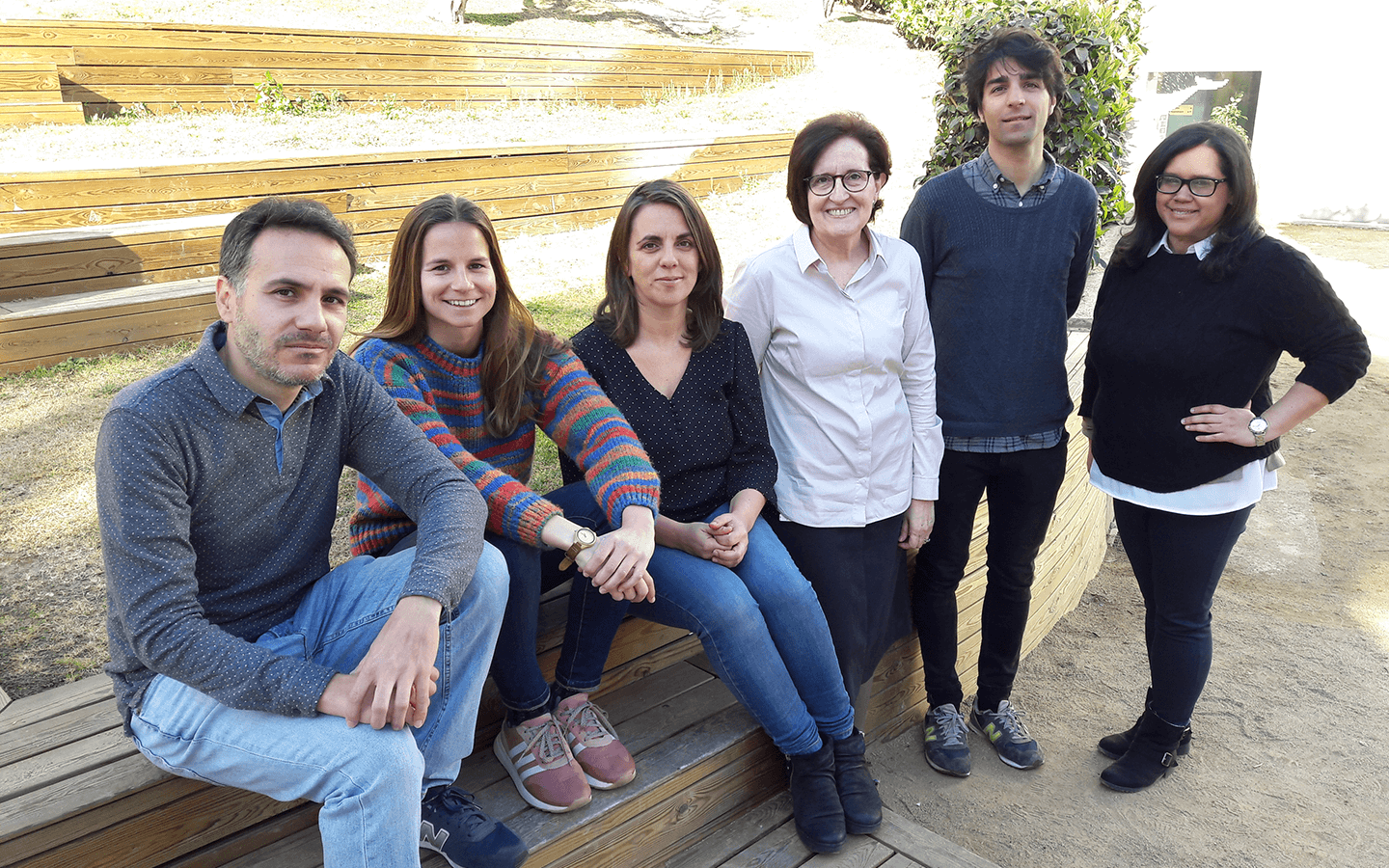Attention, Perception and Language Acquisition (APAL)
Research Program
Leaders
Where we are
 Institut de Neurociències de la Universitat de Barcelona (UBNeuro)
Institut de Neurociències de la Universitat de Barcelona (UBNeuro)
Related websites
Our group was formed in 2010 with researchers from the then Department of Basic Psychology at the Faculty of Psychology, University of Barcelona.
Our research focuses on the early years of life, but we do not exclude older age groups in order to examine possible changes from an evolutionary perspective. We also investigate neurocognitive risk populations, particularly preterm infants, infants born small for gestational age (SGA) and infants with neonatal arterial ischaemic stroke. We conduct studies on cognitive and language development, with a special focus on bilingualism, using primarily experimental/behavioural methodology, although we have recently incorporated neuroimaging electroencephalography (EEG) and event-related potential (ERP) methods.
The regular members of the group form part of the Cognition and Brain Plasticity Group at the University of Barcelona (2017 SGR-1573, coordinated by A. Rodríguez-Fornells).
Research lines
Our three active, and somewhat interconnected, research areas are:
- Speech perception
- Learning words
- Language precursors in neurocognitive risk populations.
Scientific objectives
- To evaluate and describe early audiovisual speech perception abilities, encompassing not only groups with normal development but also at-risk patient groups, especially preterm infants of various gestational ages, including low-risk groups such as moderate preterm infants.
- To evaluate patients with neonatal arterial ischaemic stroke with a view to identifying the language development effect at preschool/school stages and their learning abilities. For this line of inquiry, we work closely with Dr A. García-Álix (Neonatology). To follow-up SGA children when they turn eight years to evaluate their cognitive development and school performance (Dr L. Ibáñez, Endocrinology).
- To develop a new line of research in cochlear implant candidate patients to evaluate pre-implant neurological and cognitive-communicative characteristics and how these relate to post-implant language learning. For this line, we collaborate with Dr Claveria (ENT) and Dr Rebollo (Neuroradiology).
Area/Field of expertise
The group has gained expertise in laboratory behavioural techniques used in early childhood to assess different speech perception and language learning abilities . These methods are based on attention measuring and recording eye movements in classical habituation, familiarity and preference experimental procedures. We also use developmental scales and standardised tests to individually assess cognitive, motor and language development. We also use questionnaires for families to evaluate comprehension and expressive language and adaptive behaviour in the family setting.

Group members
-

Jefe de Grupo Senior
-

Investigador
-

Investigador
-

Investigador post-doc
-

Investigador pre-doc
Last Publications
- François C, Rodriguez-Fornells A, Cerda-Company X, Agut-Quijano T and Bosch-Galceran L Impact of late to moderate preterm birth on minimal pair word-learning CHILD DEVELOPMENT . 96(1): 203-216.
- Marcet L, Birulés-Muntané J, Bosch-Galceran L and Pons-Gimeno F Who spoke that language? Assessing early face-language associations in monolingual and bilingual infants. FRONTIERS IN PSYCHOLOGY . 15: 1393836-1393836.
- Birulés-Muntané J, Bosch-Galceran L, Lewkowicz DJ and Pons-Gimeno F Time course of attention to a talker's mouth in monolingual and close-language bilingual children. DEV PSYCHOL . 60(1): 135-143.
Theses
-
Developmental Intergroup Theory of Mind: The protagonist’s social group membership as a pragmatic performance factor
- Author
- Saumell Andreu, Carlota
- Institution
- UNIVERSIDAD DE BARCELONA
-
Language factors modulate audiovisual speech perception
- Author
- Birulés Muntané, Joan
- Institution
- UNIVERSIDAD DE BARCELONA
-
Constraints in word segmentation and mapping
- Author
- Teixidó Ibáñez, Maria
- Institution
- UNIVERSIDAD DE BARCELONA

 Institut de Neurociències de la Universitat de Barcelona (UBNeuro)
Institut de Neurociències de la Universitat de Barcelona (UBNeuro)  Universitat de Barcelona
Universitat de Barcelona